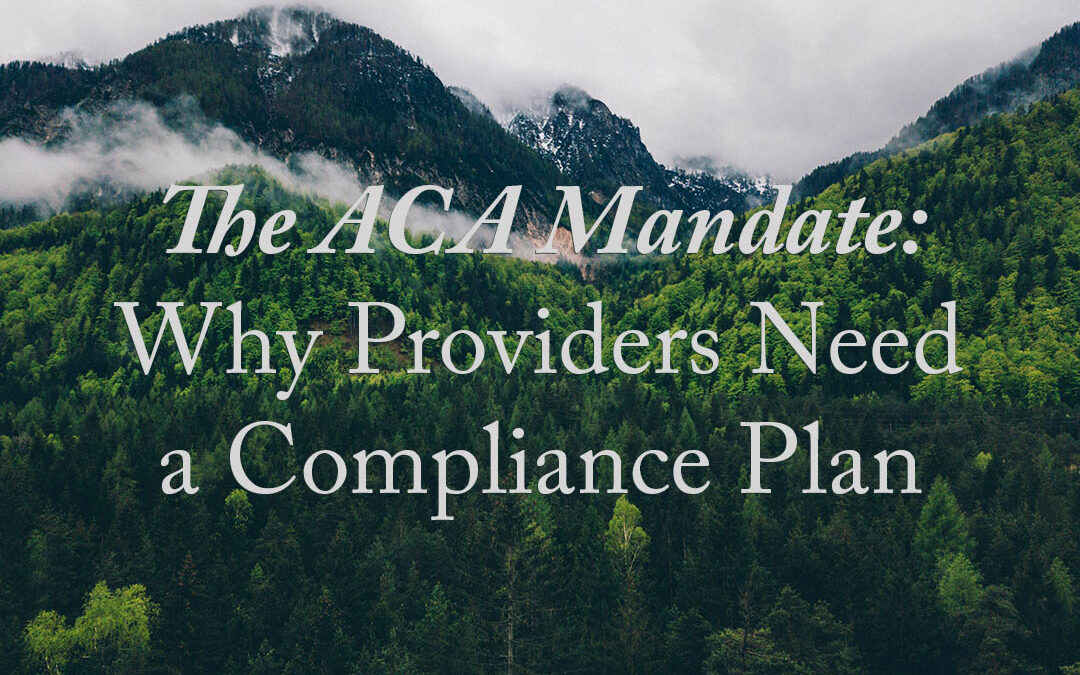Providers, are you aware that the Affordable Care Act (ACA), often referred to as “Obamacare,” mandates a compliance plan for those participating in Medicare and Medicaid? It’s surprising how many providers lack such a plan. This isn’t a one-size-fits-all document from the internet; it’s a dynamic tool that requires regular review and updates to align with changing regulations. Our General Counsel, Julie Janeway, and our compliance expert, Emily Wolfston, MSA, have developed these plans to simplify things for providers and provide them with a clear path to stay on the right side of the Office of Inspector General (OIG).
Why are we bringing this up? While the consequences of violating this rule aren’t entirely clear, it’s a mandate. Speculation suggests that violations could result in civil and administrative penalties at the very least, but more broadly, it could seriously impact your revenue cycle. We consistently emphasize the importance of a compliance plan that includes self-audits. This is the one area where providers can ensure their billing practices comply with regulations. Admittedly, those with fraudulent intent may disregard such a program, but for those committed to doing the right thing and maintaining control during audits or inquiries, a compliance program is crucial for success.
The OIG’s Model Compliance Guidance outlines seven areas to consider, although not all may be applicable. Nevertheless, self-auditing should always be a part of the program, and it should never be an in-house endeavor. Engaging a third-party entity is essential to provide an objective and honest assessment of documentation in relation to policies and rules. At Advize, we take this aspect seriously, conducting documentation reviews in line with OIG “Best Practices” and following published CMS guidance. There should be no room for guesswork in this area. When clients approach us about internal audits, our first question is, “What is the purpose and goal?” More often than not, providers lack a plan and are unaware of the ACA requirement.
When embarking on proactive actions like self-auditing, it’s crucial to define the parameters of the review. We are frequently asked about the right number of records to review and the review frequency. While the review frequency is subjective, the number of records should always align with CMS guidelines (typically 20-40 records for a probe sample, as per the CMS Program Integrity Manual). A statistically valid random sample can be as small as 100 records, depending on various factors related to confidence levels. By adhering to CMS guidance, a practice can establish a logical rationale for the number of records reviewed and leverage this information as actionable intelligence for the future.


Recent Comments